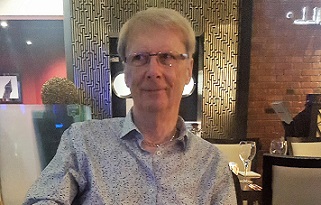 (JollofNews) – Understanding the economic migration of Africans to richer countries is an issue not fully understood by western citizens.
(JollofNews) – Understanding the economic migration of Africans to richer countries is an issue not fully understood by western citizens.
The general opinion of the uninformed takes many different prejudiced forms. We all share an inner capacity towards caution of anything we don’t fully understand or looks different or comes across as different to our own personal culture and sense of community and safe surroundings.
The first dark-skinned man I saw was a Caribbean gentleman, who entered my northern English council estate, carrying a suitcase full of neck ties and trying to sell his wares around the houses. That was in the 1950s when Britain encouraged inward migration from our colonies a source of cheap labour after the Second World War.
He caused quite a stir amongst us children, who gathered a crowd to follow him from door to door. It was therefore a reversal for me to be placed in that man’s shoes when I visited Gunjur, and was followed by a large crowd of screaming children as they chased this toubabo in similar fashion.
The experience was a lifetime’s education for me. This was not a Hollywood movie that portrayed the African as something less, but reality experienced as life in real time with the African showing me they are much more.
15 years later, with two African wives, children and soon to marry a third, I guess this learning curve, would suggest I know something more about African culture and habits than most of my kind. So is it that we British think that every African wants to take our jobs or overpopulate our small island and make us less? Or could it be that the rich tapestry of the universal cultures that are African will make us more?
I believe that the future prosperity of the United Kingdom remains closely tied to the African. And a nation that fosters good will between us will reap a significant reward in trade exchange and asset input management, along with the higher education that all Africans seek from Britain .
This fundamental bilateral exchange invested in now, will grow the UK economy and reinforce the industrial development of Africa . It is a market trend that is irreversible.
Courtesy of Kibaro News, I sat through the all encompassing address at the African Union by Madam Chairman, followed by the articulate and stimulating contribution from Barrack Obama, the first black president of the world’s only super power.
Mr Obama suggested that the United States wanted to talk about African issues but his western partners preferred to remain quiet. He appeared taken aback when he mentioned corruption and term-limits and was given an overwhelming ovation as these subjects produced the loudest applause from the comprehensive audience of the continent’s stakeholders.
It appeared to me that Mr Obama could have gone much further but stopped short. Of course an American president would place the dollar contribution as the highlight of his speech but make great play on the ingredient of “dignity” for all as the foundation of bilateral cooperation.
But I tend to feel that Africans are less interested in Aid and more focused on fair and balanced government. This is because if Aid is given to under-performing governments, it will only maintain the status quo of rich and powerful leaders. Is the sum total of independence to be dependence or are the western ambitions for Africa about to change towards trade agreements? The biggest deficit for Africa is the availability of cheap and sustainable energy. Without it, Africa will remain dependant on foreign imports and manufacturing. Governments will come and go; some will go by force and others by education of the people. Listening to Madam Chairman, she fully understands, “the Africa they want”
I for one hope that President Obama would replays the speech from Madam Chairman and absorbs her wise commentary. She has the menu and hopefully the western partners will follow her recommendations. This was a meeting of two cultures and two languages. The African has matured, energised and is advancing rapidly and will become the new economic super power within 30 years.



